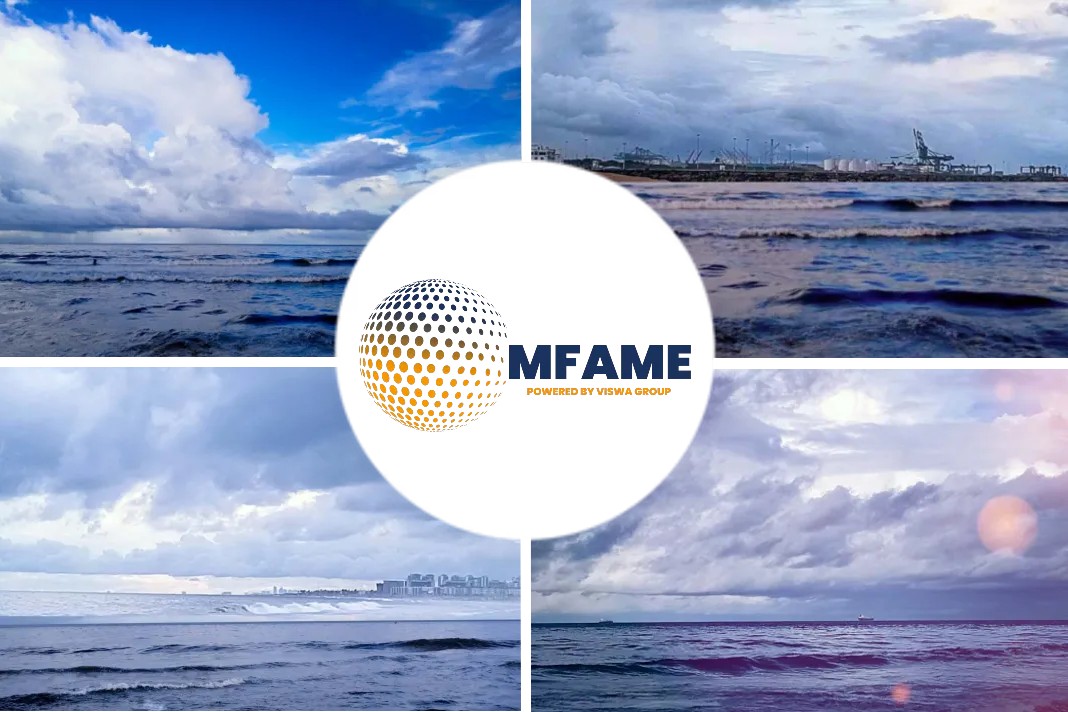
Classification society DNV on Tuesday (16 May) published a technical and regulatory news titled ‘The EU agrees on well-to-wake GHG limits to energy used on board ships from 2025’. It focuses on the EU’s legislative bodies reaching an agreement on the FuelEU Maritime regulation setting well-to-wake GHG emission intensity requirements on energy used on board ships trading in EU from 2025. From 2030, the regulation also mandates the use of shore power for container and passenger ships in certain EU ports, reports Manifold Times.
About the report
The report expands on FuelEU Maritime requirements including on the use of renewable marine fuels and shore power as well as the scope the regulations cover.
The European Parliament (EP), the Council of the European Union, and the European Commission (EC) have reached an agreement on the FuelEU Maritime regulation, with the objective to increase the share of renewable and low-carbon fuels in the fuel mix of maritime transport in the EU.
The EP and the Council are expected to formally adopt the regulation later this year. Further details on the requirements and processes can be expected as the final text is adopted and the EC finalizes related implementing and delegated acts.
FuelEU Maritime requirements
GHG intensity
From 2025, for ships trading in the EU/EEA, the yearly aver- age GHG intensity of energy used on board, measured as GHG emissions per energy unit (gCO2e/MJ), needs to be below a required level. In addition to emissions from the use on board the ship, the GHG emission are calculated in a well-to-wake perspective, including emissions related to the extraction, cultivation, production and transportation of the fuel. The regulation includes provisions for crediting ships using wind-assisted propulsion.
The GHG intensity requirements are set as a percentage reduction relative to a reference value of 91.16 gCO2e/MJ. The percentage reduction requirement increases gradually every five years to 2050 – meaning, for example, that it stays at 2% from 2025 to end 2029.
Use of shore power
From 2030, container ships and passenger ships are required to connect to shore power for all electrical power demand, when at berth for more than two hours in a Trans-European Transport Network (TEN-T) port. From 2035, the requirement applies to all ports where shore power is available. The elec- tricity supplied to the ship from shore is also included for the calculation of the annual GHG intensity, but can be reported as zero well-to-wake GHG emissions initially.
Use of renewable fuels
The FuelEU Maritime regulation does not initially set requirements on the use of renewable fuels of non-biological origin (RFNBOs), but sets their use as an additional incentive: use of such fuels counts as double the energy used. If the total share of RFNBOs in shipping in EU is below 1% in 2031, a separate use requirement will be added from 2034.
Scope
Fuel emission factors
The FuelEU Maritime regulation defines default well-to-tank and tank-to-wake emission conversion factors for various fuel types, production pathways and onboard energy converters.
Fossil fuels must use the default values for well-to-tank GHG emissions and for tank-to-wake CO2 emissions but can use actual values for tank-to-wake CH4 and N2O, certified by means of laboratory testing or direct emissions measurements.
Biofuels, RFNBOs and recycled carbon fuels (RCF) fulfilling the sustainability and GHG emissions-saving criteria (70% reduction from current fossil fuels) under the EU’s Renewable
Energy Directive (RED) can use certified actual values for both well-to-tank and tank-to-wake. The actual well-to-tank values must be certified by a scheme recognized by the EC. Fuels not meeting the GHG-saving criteria, non-sustainable biofuels, and biofuels from food or feed crops are considered fossil fuels and have to use the default factors for the fossil fuel of the same type.
For non-fossil fuels, additional information will be required to accompany the Bunker Delivery Note (BDN), including evidence of compliance with the sustainability criteria certification and the GHG intensity.
Recommendations
DNV recommends that companies with ships falling within the scope of the FuelEU Maritime regulation prepare for the updated monitoring and reporting requirements. Furthermore, companies are recommended to start considering how to acquire the necessary fuels.
DNV will inform its customers about further developments of the FuelEU Maritime regulation through Technical and Regulatory News, webinars, podcasts and more.
Did you subscribe to our daily Newsletter?
It’s Free! Click here to Subscribe
Source: Manifold Times
















